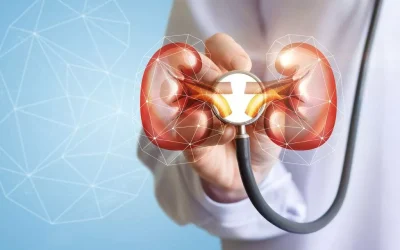The effect of alcohol withdrawal syndrome severity on sleep, brain and cognition PMC
It’s perfectly normal to experience changes in appetite in the first week of sobriety. Your body is likely feeling deprived of a substance it has grown to expect, and your appetite may fluctuate as your body and brain recover from past alcohol use. While this may be unsettling, it’s important to remember that it’s temporary. To feel better more quickly, it’s crucial to stay hydrated and eat nutritiously during the first several days of sobriety. Drinking lots of water and eating whole grains, fruits, vegetables, and proteins low in fat can help you feel more energetic and full. Ultimately, sobriety contributes to improved digestion, hydration, and physical fitness.
Alcohol Brain Fog: How to Start Healing Your Brain
Brain fog after drinking usually lessens within 8 to 24 hours.3 However, the timeframe can be longer for people who experience cognitive impairment as a result of alcohol use disorder. In general, there aren’t any known medications or treatments that correct brain fog directly. Towards the end of one week sober from alcohol, it’s likely that you will see improvements to your sleep cycle, energy levels, mental clarity, anxiety levels, and overall well-being. You will also discover that without drinking, you have more time and money. You might return to old hobbies or discover new ones, and enjoy a boost in savings. Everybody’s journey is different, and if you don’t feel as many benefits after seven days, it doesn’t mean they aren’t going to develop.
Addiction Info
Brain Fog: Causes and Treatment – Alzheimer’s Disease – Health.com
Brain Fog: Causes and Treatment – Alzheimer’s Disease.
Posted: Thu, 31 Aug 2023 07:00:00 GMT [source]
Cutting back or cutting out alcohol is an amazing choice you can make for your health and lifestyle. As a therapist that helps people stop drinking, I often hear from clients that they want to make a change, but are intimidated by the potential of experiencing withdrawal symptoms. Withdrawal is a real possibility when cutting back or cutting out alcohol, but it can be safely managed and mitigated with the right tools. If you’re wondering how to get rid of alcohol-induced “brain fog,” it may be time to seek professional treatment. Professional treatment can help you stop drinking and regain control of your life. Knowing why you’re experiencing brain fog is an important first step in understanding what may help relieve symptoms.
Signs of alcohol withdrawal syndrome
If you’re unsure what could be causing your brain fog, consult with a healthcare provider for advice. Feeling mentally drained happens to everyone from time to time, especially when experiencing sleeping difficulties. But brain fog is not the same as fatigue or lethargy, although they often go hand in hand or co-occur with symptoms of other conditions. Brain fog can be hard to define since it is not a medical term or diagnosis. Experiencing brain fog from alcohol withdrawal is part of your recovery journey. And when you refrain from drinking alcohol, it takes a toll on this body organ.

Get help right away if you or a loved one has an alcohol-related seizure. People with alcohol use disorder who quit drinking often have trouble sleeping. Cognitive behavioral therapy for insomnia (CBTi), medication, or a referral to a behavioral sleep specialist can help. AWS is more common in adults, but children and teenagers who drink excessively may also experience the symptoms. You’re also at risk for AWS if you’ve previously had withdrawal symptoms or needed medical detox for a drinking problem. Talk to your doctor if you’re concerned about your drinking habits.
You’ll meet millions of fellow Reframers in our 24/7 Forum chat and daily Zoom check-in meetings. Receive encouragement from people worldwide who know exactly what you’re going through! You’ll also have the opportunity to connect with our licensed Reframe coaches for more personalized guidance. Alcohol can also impair our cognition by affecting our diet and vitamin absorption. Alcohol is devoid of important proteins, minerals, and vitamins — and it actually inhibits the absorption and use of vital nutrients such as thiamine (vitamin B1), vitamin B12, folic acid, and zinc. Thiamine is particularly important, as it’s involved in the metabolism of proteins and fat and the formation of hemoglobin — a protein in red blood cells that carries oxygen to tissues throughout our body.
- Stopping drinking abruptly can lead to seizures and can even be fatal.
- You can also use the National Institute on Alcohol Abuse and Alcoholism’s Alcohol Treatment Navigator to search for a substance use treatment center near you.
- For patients whom benzodiazepines were prescribed, we also recorded the number of days and the total amount of benzodiazepines received during alcohol withdrawal.
- They should also make sure you attend your counseling appointments and visit the doctor regularly for any routine blood tests that may be ordered.
Can’t walk in off the street and get a drink
They should gradually start to improve as your body begins to adjust to being without alcohol. This usually takes three to seven days from the time of your last drink. When you stop consuming alcohol your body goes through a period of detoxification, which is when the withdrawal symptoms are at their most acute.

More on Substance Abuse and Addiction

However, sleep disturbances, irritability, and fatigue may continue for months. Contact your doctor right away if you’re concerned about the symptoms you’re experiencing during alcohol withdrawal brain fog alcohol withdrawal. When the neurotransmitters are no longer suppressed, but are used to working harder to overcome the suppression, they go into a state of overexcitement.
